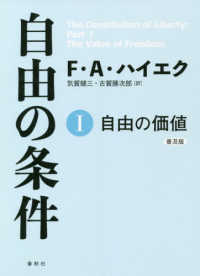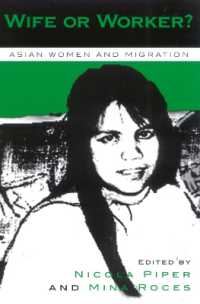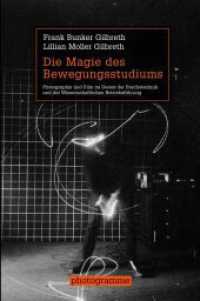- ホーム
- > 洋書
- > ドイツ書
- > Humanities, Arts & Music
- > Linguistics
- > german linguistics
Full Description
This book examines the depiction of childhood and the Nazi German past in post-1989 German literature. Focusing on the work of W.G. Sebald, Marcel Beyer, Martin Walser and Dieter Forte, the study analyses how these authors employ tropes and myths of childhood in their engagements with Germany's National Socialist past, including the remembrance and representation of the Holocaust, German suffering and trauma, and the National Socialist 'everyday'. Their works are thus read as points of contact between the politics of the German past and the cultural construction of childhood.
The term 'childness' is here modified and developed to establish a new theoretical frame of reference for literary childhood. The encounter between the adult reader and the fictional child is understood as one marked by complex and intense forms of desire, conducive to revision, mourning, nostalgia and defamiliarization. Through this framework, the study casts new light on the fictional child as a focal point of ideology and desire.
Contents
Contents: Childness and the discursive landscapes of the 'new' Federal Republic - The tabula rasa and the innocent eye in Dieter Forte's Der Junge mit den blutigen Schuhen - Childness and the 'New Right': Martin Walser's Ein springender Brunnen - The violence of innocence in Marcel Beyer's Flughunde - 'Enchanted hunters': Paedophilic motifs in the work of W.G. Sebald - Innocence, death and Sebald's structures of mourning - Intimations of mortality: Childhood memory and the child's perspective in Sebald's 'Il ritorno in patria', 'Max Aurach' and Austerlitz - The dream of wholeness: Childness, memory and subjectivity in Austerlitz - Childness and the poetics of persuasion.








